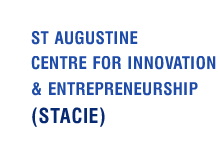On April 25 and 26, 2024, a two day Regional Forum on the “Use of Intellectual Property for Solutions to the Problem of Plastic Waste in the Caribbean” was facilitated by The World Intellectual Property Organization (WIPO) in cooperation with the Office of the Attorney General and Ministry of Legal Affairs (AGLA), the Trinidad and Tobago Intellectual Property Office (TTIPO) and the University of the West Indies through the St. Augustine Centre for Innovation and Entrepreneurship (STACIE), with the support of FIT/ Japan Industrial Property Global and the Japan Patent Office (JPO). This forum was also linked to the theme for World Intellectual Property Day 2024 on April 26, 2024 "IP and the Sustainable Development Goals", most specifically, UN SDGs 12 (Responsible Consumption and Production) and 14 (Life Below water). The objectives of the Forum were to explore innovative ways to tackle the problem of Plastic Waste Management in the Caribbean, to utilize Intellectual Property to promote innovation and to explore technology transfer opportunities through Academia and Private sector collaborations. The participants consisted of experts from across the region gathered to collectively address this environmental issue.
Opening remarks were delivered by: Ms. Carol Simpson, Head, Section for Caribbean countries, Division for Latin America and the Caribbean (DLAC), World Intellectual Property Organization (WIPO), Ms. Sachiyo Yoshino, Director of International Cooperation Division, Japan Patent Office (JPO) and Dr. Graham King, Director, St. Augustine Centre for Innovation & Entrepreneurship, STACIE, The University of the West Indies (UWI), St. Augustine (STA).
From left: Ms. Carol Simpson (WIPO), Ms. Sachiyo Yoshino (JPO), Dr. Graham King (UWI)
Alarming statistics were shared to sensitize the attendees to the growing problem of plastic waste:
• A staggering 139 million metric tons (MMT) of single use plastic waste was used in 2021, according to the Plastic Waste Makers Index.
• Adults consume an estimated mass of microplastics equated to up to one credit card per week.
• By 2050, the mass of plastic in the oceans is predicted to exceed the mass of fish.
The keynote address was delivered by the Minister in the Office of the Attorney General and Ministry of Legal Affairs, Senator the Honourable Renuka Sagramsingh-Sooklal, who highlighted the importance of the Forum to reduce reliance on plastic and reduce existing plastic waste. She stressed that she stood with those making these efforts for change. Ms. Cynthia Cannady, Director, Intellectual Property for Sustainable Energy Ventures (IPSEVA) gave an overview of the project and described how Intellectual Property (IP) can create value in the plastic waste area in the Caribbean Community (CARICOM) region.
Prof. Daniel Coore, Scientific Advisory Council for the project, UWI, Mona, spoke about IP policy and partnership in academia to create an enabling environment for research in the area of biodegradable materials. He emphasized the challenges, such as marketing navigation and licensing, and he identified potential pathways and solutions to overcome them. Mr. Yuichiro Kawamura, IPSEVA, member of Japan IP Association, described international experiences in applied research and development for biodegradable materials.
For the remainder of Day 1, the project consultants discussed their papers:
1. Dr. Joyann Marks (UWI, Mona) - Biobased materials as alternatives to polyethylene, polypropylene and polystyrene (Styrofoam) packaging
2. Dr. Ruel Ellis (UWI, STA) - Examination of the Plastics Problem from an Eco System Perspective; Identification of a Possible Solution and Possible Commercialization Opportunities
3. Dr. Legena Henry (UWI, Cavehill) - Challenges and Opportunities in Commercializing Caribbean Research and Development for Dynamic Economic Growth: Rum & Sargassum
On Day 2, the project consultants formed groups to discuss the main barriers to successful research commercialization for new materials for the Caribbean market. The lack of strict legislation to catalyze change, funding for research, development, IP protection and commercialization and consumer perspectives were seen as hindrances to successful research commercialization.
Possible funding opportunities for management of plastic waste in the CARICOM region were explored by Mr. Gilroy Lewis, Senior Sector Specialist in Water and Sanitation, Inter-American Development Bank (IDB). A private sector round-table discussed what they were looking for in order for them to partner with the University. Challenges to industrial plastic management such as transportation issues and pelletization being done externally were discussed together with some current projects such as the “Too Good to Waste” initiative and the “Coalition of the Circular Economy”.
Ms. Keisha Garcia (ESG Natural Capital Lead, ANSA Merchant Bank) indicated company interest in funding of:
• research projects
• a Caribbean Natural Capital Hub
• risk assessment for plastic and plastic pollution strategies and
• green project financing for SMEs to determine bankable projects.
Dr. Damien King, Chairman, Recycling Partners of Jamaica, attributed the barriers to adoption of greener solutions and research to an economic problem of competition and market failure. Mr. Philip Laflouf, Operations Manager, Eco Sky Water, Barbados, was desirous of quantitative research to expand their operations and ESG goals via certification, and challenged the audience to determine the true cost for the entire lifespan of a polyethylene (PET) bottle.
A stimulating round table discussion was held with members of academia comprising: Dr. La Daana Kanhai, UWI, Prof. Daniel Coore, UWI, Dr. Graham King, UWI, Dr. Legena Henry, UWI, Dr. Solange Kelly, University of Trinidad and Tobago (UTT), Mr. Pedro Britton, National Institute of Higher Education, Research, Science and Technology, (NIHERST) and Dr. Damien King. The University is ideally positioned to deliver cutting edge solutions to the private sector to advance plastic waste pollution solutions. At the end of the forum, Ms. Cynthia Cannady stressed the WIPO’s commitment to the cause and indicated that they would be submitting a concept note to the IDB for recycling projects.








